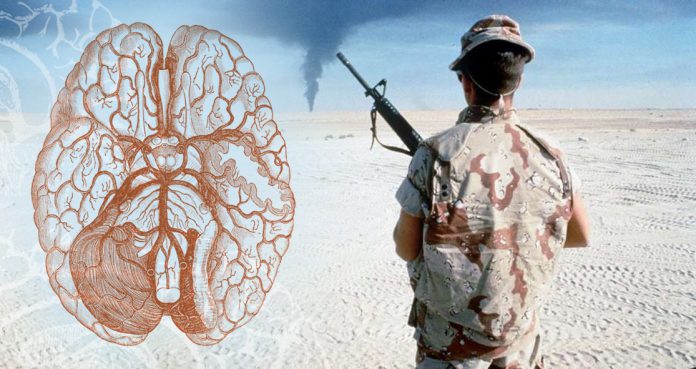New research, published in the journal Brain Communications, has found that Gulf War Illness (GWI) could lead to major changes in brain activity and could be categorized into two distinct subtypes.
Researchers from Georgetown University Medical Center have demonstrated that patients with GWI have two significant changes in their brain after exercise.
The researchers used functional magnetic resonance imaging (fMRI) to measure the biological changes in the brain, suggesting multiple treatment strategies for patients with GWI.
GWI is a chronic condition that has affected about 25 to 35 percent of military veterans who came back from the 1990-91 Persian Gulf War.
The signs and symptoms of the illness include insomnia, fatigue, muscle ache, cognitive issues, and exhaustion after exercise.
The study, led by Dr. James Baraniuk at Georgetown University Medical Center, examined the fMRI brain scans of veterans with Gulf War illness before and after exercise. And the following day, they underwent a second stress test along with a memory test during brain fMRI imaging.
There were no differences in the scans among veterans before exercise.
The researchers divided the veterans into two groups – the one that had shown increasing heart rates after standing up and the other that did not.
They further classified the type of abnormal brain activity into those two groups to see the changes after exercise.
After exercise, the GWI veterans who had increased heart rates after standing up were found to have a significant decrease in brain activity in the cerebellum that regulates fine motor control, cognition, pain, and emotion.
The other GWI veterans who had no racing heart rates had a significant increase in brain activity in some other part of the brain responsible for body movements and chronic pain.
On the other hand, healthy patients showed no brain changes at all.
Dr. Baranuik said, “Gulf War illness remains a debilitating disease, but we are getting a better handle on the cognitive dysfunction.”
“Now that different regions of the brain have been associated with two subtypes of GWI, we can study these regions through imaging and other techniques to improve diagnosis and, perhaps, to study future treatments,” he added. “We are grateful to the veterans who participated in this research because they are providing the answers to medical questions and leading the charge to new therapies for GWI,” Dr. Baranuik concluded.























